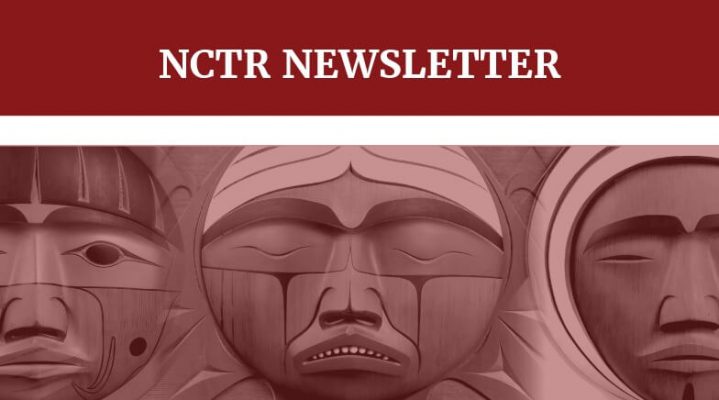Na-mi-quai-ni-mak Community Support Fund FAQ
The National Centre for Truth and Reconciliation (NCTR) is pleased to announce a new program, Na-mi-quai-ni-mak (I remember them) Community Support Fund
Na-mi-quai-ni-mak (I remember them) Community Support Fund is a number of small grants made available through the NCTR to support community-based healing and remembrance. The name Na-mi-quai-ni-mak is Anishinaabemowin (Ojibway) meaning ‘I remember them’; the name was given to the program by a residential school Survivor and Elder.
Indigenous communities, Survivor organizations, and registered non-profit organizations can apply to the Na-mi-quai-ni-mak (I remember them) Community Support Fund to hold small gatherings and/or install commemorative markers to honour Residential School Survivors. Please note, payments from the Fund cannot be made to individuals and require the support of a community organization. The application form is available here (DOCX).
Written applications may be submitted in English, French or your preferred Indigenous language. Recognizing that some communities may experience barriers to applying, the NCTR will accept oral applications through recorded interviews via Zoom, Skype, or similar platform.
Please allow a minimum of three months between submitting your application and the start of your project to allow enough time to process your funding request.
The NCTR created the Na-mi-quai-ni-mak program to assist community groups or organizations with their commemoration projects. Commemorations are specifically mentioned in the Truth and Reconciliation Commission’s 79th Call to Action, which signals the importance of integrating Indigenous history, heritage values and memory practices into Canada’s public memory. Funds have also been provided by individual donors, organizations, and companies.
Some possible activities could include, but are not limited to:
- Community-led healing gatherings
- Ceremonial activities (memorial feasts, giveaways, etc.)
- Memorial or commemorative markers (healing gardens, murals, carvings, plaques, etc.)
- Maintenance of burial sites (fencing, cutting back overgrowth, etc.)
Applications will be reviewed by a Grants Committee comprised of Indigenous Elders and Residential School Survivors from across Canada.
You are welcome to submit your application at any point in time. Applications are received on a rolling basis up to the program funding cap each year.
Funds can either be paid as a lump sum cheque or receipts can be submitted for reimbursement.
The maximum amount of money available through the program is $10,000 per commemoration project, although more may be available for healing gatherings.
Guidelines for Applying to the Na-mi-quai-ni-mak Community Support Fund:
Note: Na-mi-quai-ni-mak funds projects related to the Indian Residential School System and looks to provide grants to projects that have demonstrated inclusion of residential school Survivors as central to the planning and execution of the commemoration or gathering.
Call to Action 79.3 is specific to commemoration, thus projects that focus on missing children or unmarked graves would not be eligible for a Na-mi-quai-ni-mak grant. There is funding available for missing children or unmarked graves through Crown-Indigenous Relations and Northern Affairs. For more information on the Residential Schools Missing Children – community support funding, please visit their website at: https://www.rcaanc-cirnac.gc.ca/eng/1622742779529/1628608766235
If you have any questions about the program or application process, please contact the Jennifer Wood at at 1-204-474-8005 or 1-204-914-4757 or via email at Jennifer.Wood@umanitoba.ca.
NCTR’s spirit name – bezhig miigwan, meaning “one feather”.
Bezhig miigwan calls upon us to see each Survivor coming to the NCTR as a single eagle feather and to show those Survivors the same respect and attention an eagle feather deserves. It also teaches we are all in this together — we are all one, connected, and it is vital to work together to achieve reconciliation.

